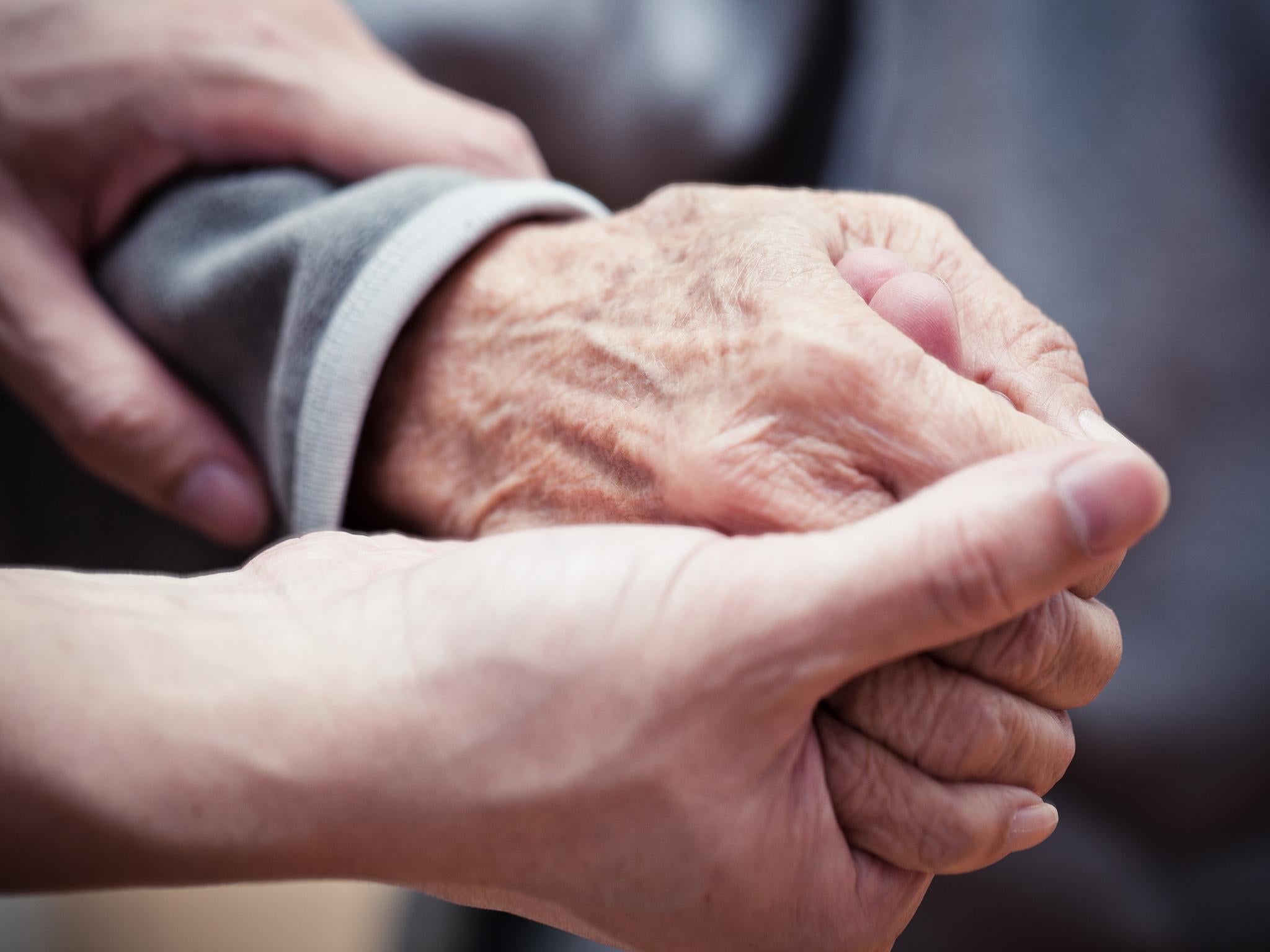99% of advanced dementia sufferers not getting specialist care, finds study
Lack of palliative care services in community means GPs and emergency services being forced to provide most of dementia patients’ healthcare

Ninety-nine per cent of advanced dementia sufferers are not receiving specialist care they need, new research suggests.
A survey of people in the later stages of dementia shows that a lack of palliative care services in the community means GPs and emergency services are being forced to provide most of their end of life healthcare, rather than specialist services.
The study, conducted by the Marie Curie Palliative Care Research Department at University College London, reveals that just one per cent of advanced dementia patients had contact with specialist services such as a geriatrician or an older persons’ psychiatrist.
The findings, based on a survey of 85 people with advanced dementia from six clinical commissioning groups (CCGs) across Greater London, show that nearly one in five (19 per cent) sufferers were seen by a paramedic in the month prior to their death, suggesting a reactive rather than planned response to patients’ needs.
Researchers also found that GPs were the main providers of medical care for dementia patients, with 96 per cent of people with advanced dementia seeing a GP in their last month of life.
Care homes, where the majority of people with dementia die, were found to be poorly served by secondary healthcare services, with GPs who visited homes not supported by specialist services, according to the findings.
While palliative care teams may have assisted with symptom management, less than a third of participants (28 per cent) were seen by a palliative care team – despite 34 per cent being referred – and when they were, this was predominantly in the month prior to their death.
Helen Findlay, who cared for her mother who died from dementia, said she was told her mother didn’t need palliative care when she asked because she “didn’t have cancer”.
“Mum’s dementia was getting worse but when I asked about palliative care I was told that she wasn’t at that stage, despite the fact my GP had told the family that she only had 12 months left to live,” she said.
“Nearer the end I asked about specialist care again and they said that she didn’t need it as she didn’t have cancer – that’s how they viewed it. Sadly, I think there is a perception that dementia isn’t a terminal illness and therefore doesn’t require specialist care.
“My mum was also suffering from kidney failure and this might have been picked up on earlier if she had been seen by a specialist.
“At the end of the day it’s about treating people with respect and giving them the dignity they deserve when they’re dying. When a loved one has dementia, you’re already grieving before they’ve died.”
Based on the findings, experts warned that – given that dementia is now the leading cause of death – healthcare services were not currently tailored to the complex needs and symptoms of people with advanced dementia, and have urged the Government to increase funding for palliative care services in the community.
Scott Sinclair, Marie Curie’s head of policy and public affairs in England, told The Independent: “We know that, with the right support and resources in place, it is possible to deliver high-quality end of life care within the community.
“This research demonstrates that there is an urgent need for the Government to increase the capacity of palliative care services in the community and this will require more funding in terms of both health and social care.
“One third of people in the UK aged over 65 will die from some form of dementia and many are currently not getting the care that they need and deserve. With numbers only set to increase, we can only expect things to get worse unless drastic measures are taken.”
Mr Sinclair added that the lack of funding was preventing dementia sufferers from having a good quality of life before they die, urging that this was “not fair” for patients or their families.
“For many people with advanced dementia, care homes are essentially playing the role of hospices but without any of the specialist support services that are available in a hospice," he said.
“This is not fair to the residents and their families, or the care home staff who are unable to meet the needs of their residents.”
The Local Government Association, which represents local councils, has recently warned that adult social care is at a tipping point, with the sector facing an annual £2.3bn funding gap by 2020.
It comes after research earlier this year suggested that the number of people living with dementia in England and Wales is to rise to 1.2 million by 2040 as life expectancy increases
A Department of Health spokesperson told The Independent: “We want England to be the best place in the world to live with dementia where every patient receives the highest quality care and support. That’s why we have set ambitious plans in our Challenge on Dementia 2020 to drive up standards by ensuring everyone receives end of life care that is compassionate and personalised.”
Join our commenting forum
Join thought-provoking conversations, follow other Independent readers and see their replies
Comments
Bookmark popover
Removed from bookmarks